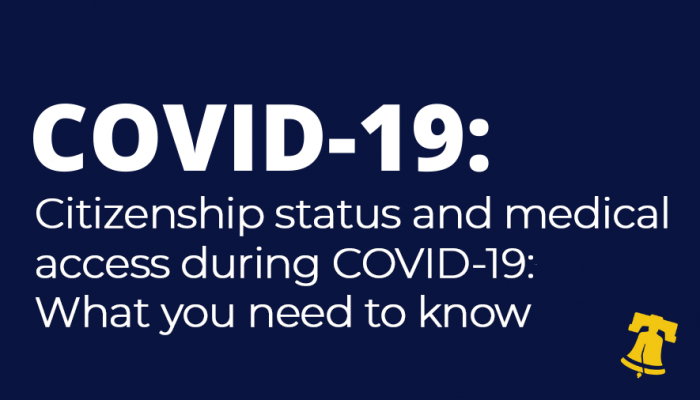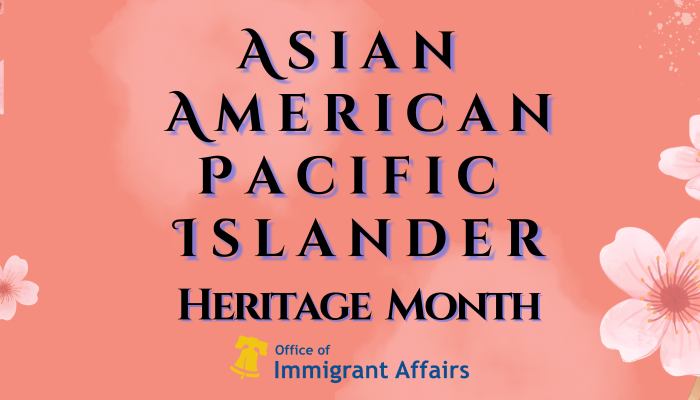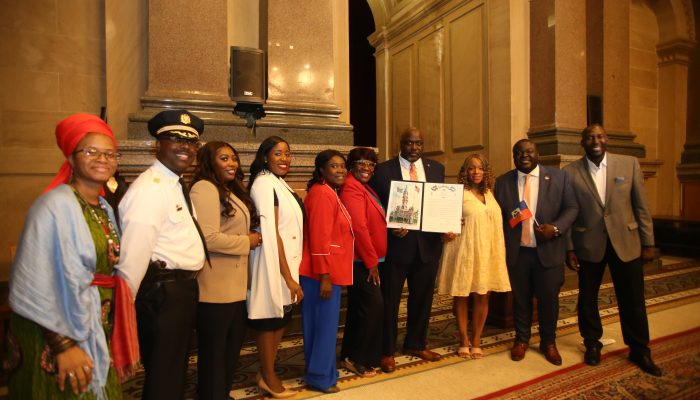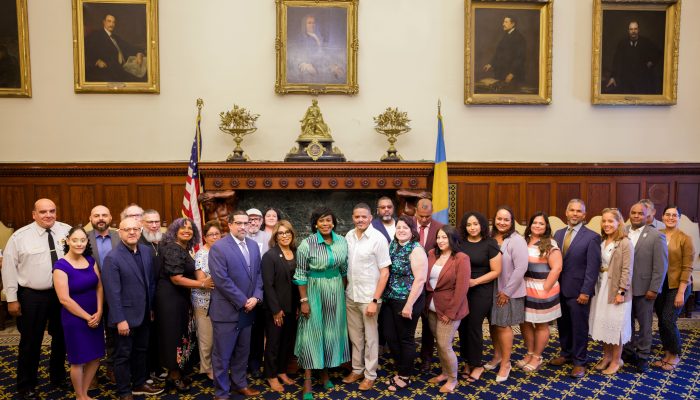As the COVID-19 pandemic intensifies, it is important to remember that COVID-19 impacts all Philadelphians. The virus does not distinguish between nationality or immigration status. Everyone should seek medical care when they need it.
If you are an immigrant or refugee, you face different challenges when accessing medical care. Still, you are entitled to treatment regardless of your immigration status or ability to speak English. Federal law protects your personal information, and you can ask for an interpreter at health clinics and hospitals. The information below addresses common concerns that discourage people from seeking medical help when they need it.
This information is available in Spanish, Simplified Chinese, Vietnamese, Russian, French, Haitian Creole, Swahili, Korean, and Khmer.
Will I be denied medical care if I am not a U.S. citizen?
No. The City of Philadelphia is a welcoming city. Municipal services like the City of Philadelphia Health Centers are available to anyone—regardless of citizenship status. COVID-19 testing sites also accept the PHL City ID, a secure photo identification card for Philadelphia residents who might face barriers obtaining other forms of official identification.
When obtaining care, hospitals or doctors may ask for a photo ID. This is to make sure that the person receiving care or a prescription is the person they are treating. If you do not have a photo ID, you can say, “I am in need of medical care but do not have a photo ID.”
Even if you are not a U.S. citizen or have no health insurance, you can get medical care. The City of Philadelphia stands behind this.
If I seek medical care, is my personal information safe?
Yes. Federal law prohibits medical providers from sharing patient information without the patient’s consent. A health care provider may ask about your immigration status if you are applying for health insurance. However, doctors are not legally required to report a patient’s citizenship status to federal immigration authorities. You can also say, “I am not eligible for health insurance and do not want to apply.”
National partners have more information about your rights when you go to the doctor available in different languages. Remember: Doctors will treat you whether or not you have insurance, money, or immigration documents.
Can I get an interpreter in my language if I seek medical care from the City of Philadelphia?
Yes. The City of Philadelphia Health Centers see everyone, even if you do not speak English. Interpretation and translation services are available. You will not be turned away because you cannot speak English.
Can I request an interpreter in my language if I seek medical care from medical establishments outside of the City of Philadelphia Health Centers?
Yes. Everyone has a right to receive medical care in a language they can understand. Title VI of the Civil Rights Act of 1964 (Title VI) is a federal law that protects people from discrimination based on their race, color, or national origin in programs and activities that receive financial assistance from the federal government. If you are eligible for Medicaid or receive services from a federally-funded health or human services agency, those entities also cannot deny you access to their programs or activities because of your race, color, or national origin. This includes taking reasonable steps to ensure meaningful access by limited English proficient (LEP) persons to programs or activities.
If you feel that a hospital or health clinic has failed to take reasonable steps to ensure access for you or someone you know, you can file a complaint of discrimination with the Office for Civil Rights (OCR) of the U.S. Department of Health and Human Services.
What about public charge? Will getting tested or receiving treatment for COVID-19 hurt my ability to apply for a green card or citizenship?
No. USCIS announced that public charge rules will not apply to people getting tested for COVID-19. This includes accessing health care through Medicaid, other discounted medical care, and local clinics.
USCIS also stated that unemployment insurance benefits DO NOT count towards public charge determinations. Unemployment benefits are an important safety net for people affected by COVID-19. Please apply if you need it.
Our partners at Community Legal Services have more information about public charge, public benefits, and COVID-19.
How can I access primary care or other urgent care in the midst of COVID-19 and social distancing?
The health care system is open for anyone who needs it! The City Health Centers and Federally Qualified Health Centers (FQHC) are open and accepting patients. If you can, call first–this is not a time that you want to pass unnecessary time in waiting rooms with other people who may be sick–but please do continue to seek care for any health problem when you need it. In life-threatening situations, call 911 or get to an emergency room.
How can I get tested for COVID-19 in Philadelphia?
The Philadelphia Department of Public Health recommends that people who are experiencing symptoms of COVID-19, like fever, a dry cough, or shortness of breath should be tested for the virus. If you are having difficulty breathing or need immediate care, call 911.
If you think you should be tested for COVID-19, contact your regular healthcare provider or the hospital system where you last received medical care. Call them first so they can be prepared if you have to come into the office.
If you cannot get tested through your regular health care provider, the City of Philadelphia has opened an indoor testing site in Center City. Testing is available to people who have symptoms and are either older than 50 or are healthcare workers, or work in congregate settings, including homeless shelters and prisons. This site is available by appointment only and a referral is required. Those who meet the criteria and need a test can call 267-491-5870 to make an appointment. More details on testing are available here.
Additional information and guidance around COVID-19 is available in multiple languages online at the COVID-19 multi-language resources page, by calling the Greater Philadelphia Coronavirus Helpline at 1-800-722-7112, or by calling 311 and asking for the language help you need.




